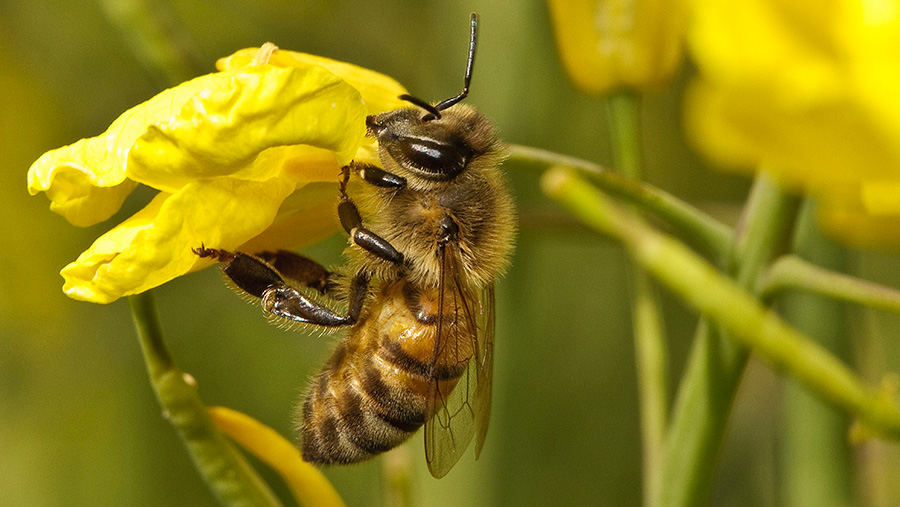EU food watchdog delays neonicotinoids review
 © FLPA/Rex/Shutterstock
© FLPA/Rex/Shutterstock A long-awaited review of three neonicotinoid pesticides, which have had their use restricted on oilseed rape crops, has been delayed until the autumn.
The three neonicotinoid pesticides – Bayer’s imidacloprid and clothianidin and Syngenta’s thiamethoxam – were banned for use on flowering crops such as oilseed rape and sunflowers in December 2013.
Scientists at the EU food safety watchdog, the European Food Safety Authority (Efsa), had been due to publish a full re-evaluation of the scientific evidence of the risks of these pesticides to bees later this month.
See also: EU scientists review pesticides linked to poor bee health
But Efsa, which guides EU policymakers, said the deadline has been extended until the autumn “to ensure adequate time to consider the very large amount of information received during the call for data”.
The European Commission introduced the three-year EU-wide moratorium after Efsa scientists concluded that neonicotinoids posed a “high acute risk” to honeybees when used on crops attractive to them.
Defra and the NFU challenged the findings and called for more research to be carried out in the field on the effect of neonics on bee populations.
Last week, Friends of the Earth (FoE) published a new report calling for the EU restrictions on neonicotinoid pesticides to be extended to wheat to protect bees and other wildlife.
FoE seeks permanent ban
Responding to the report, the NFU said extending the neonics ban for use on wheat, a crop which is not bee-pollinated, would be unjustified based on current scientific evidence.
But FoE said it hoped Efsa’s review would lead to a permanent ban on neonicotinoids, extended to all crops.
FoE bee campaigner Dave Timms said: “It’s now clear the current restrictions will stay in place until at least 2018 with only limited, temporary exemptions possible.
“The NFU should accept the growing scientific evidence of the threat neonics pose to bees, and the chance of them returning to widespread use is rapidly disappearing.
“It’s time to focus on calling for more government support for research and development to help farmers get off the chemical treadmill, and get on with the valuable job of producing food that doesn’t damage our environment.”
NFU senior regulatory affairs adviser Chris Hartfield said: “Farmers in the UK and across the EU find themselves in an uncompetitive situation compared with producers elsewhere in the world, where the use of neonicotinoids is widely available.
“They need certainty about what tools will be available in the future to enable them to continue to grow food sustainably, efficiently and competitively. The NFU would not want to see any further delays in the publication of this report.”

